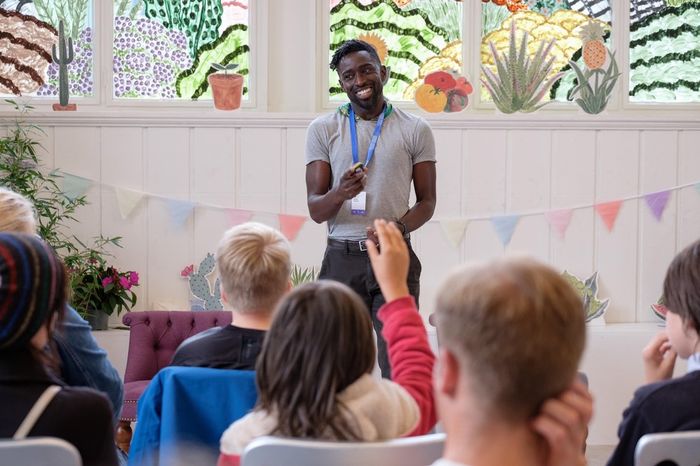‘From the world outside, Cambridge looks like a very small fishbowl’: Orlando Figes on life after academia
Renowned historian of Russia gives his take on the war in Ukraine

When I got the call to interview the renowned historian Orlando Figes, I wasn’t sure what to expect. The volatility of his camerawork throws me off even more, nearly headbutting his phone at times. As our conversation develops, he doesn’t seem to know what to expect either. I’m dipping my toes into the world of interviewing, just as he enters the world outside of academia for the first time in over 30 years.
Maybe this is why Figes seems uninterested in the obligatory questions about his time in Cambridge and what he thinks about the recent Caius furore (despite his Caian roots). He has no desire for any more involvement in a place which “from the world outside looks like a very small fishbowl”, a university “sort of obsessed with itself”. I get the sense that by the end of his 35 year career, the culture of academia was beginning to frustrate him.
“[Cambridge is] sort of obsessed with itself”
He perks up when I ask him about the play he is currently working on, a dramatisation of letters between the 19th-century French novelist Gustave Flaubert and his contemporaries. I have to admit that I had never heard of Flaubert before this conversation, but his enthusiasm for the “cantankerous old misanthrope” is infectious. “Always too shy to take part in Cambridge theatre”, he is clearly excited about the opportunity to approach the telling of history in a way he hasn’t before: with lights and stage.
When I probe into one of his more controversial pieces of work, a 2013 article for Foreign Affairs titled ‘Is There One Ukraine?’, the conversation turns more serious. The piece suggested holding a referendum on the status of the eastern regions of the country and was highly controversial. Figes recalls receiving “hate mail from Ukrainian nationalists” and blames the editors for the “provocative” headline. He reflects that a referendum seemed sensible at the time. Today he concedes that to suggest as much would be “completely inappropriate”. The ‘restarting’ of the war with its “terrible atrocities” is “the most important issue of our day, or at least one of them” in his eyes.
“In the end what this is, is a brutal imperial war and a land grab”
I ask him what he thinks of the culture war waged by Putin and his mouthpieces, peddling their narrative of civilisational conflict against a ‘decadent’ West. Figes brushes this away, suspecting that Putin’s circle “only half believe it at most”. For him, “all that just melts away because in the end what this is, is a brutal imperial war and a land grab”. He describes it to me in terms beyond the geopolitical, framing it as a “group of people in power [who] probably want revenge on Ukraine for having the audacity to want to be independent in the first place, and then wanting to be part of Europe and even NATO in the second place”. The atrocities of the war are “rooted in a Russian sense of superiority over the Ukrainians” he says.
Figes is certainly a little surprised by the unity shown by Ukrainians since the escalation of the war; the country has been “proving itself as a united nation on the battlefield every day”. His perspective as a historian taints this optimism, however, as he reminds me that the last time Ukraine tried to assert its independence it was crushed by an imperial power. True to form, he is unsure about the future. Ukraine’s dependence on Western assistance ties them to uncertain political environs, especially in the United States. He warns me that the next presidential election is crucial, and fears that if “Trump or another Trump-like figure wins, I’m afraid it looks very bad for Ukraine”.
In the face of suffering, violence and war, I ask him what he thinks his new book - The Story of Russia - can achieve. While he doubts that it will reach many eyes in Russia, he hopes that it might change how Western readers understand Russian history and equally how Russians understand their own past. He is critical of the general approach to Russian history in British universities, which “often judge[s] Russians by how far they measure up to Western standards”. Figes is cognizant of the fact that to end the war, and in the post-war landscape, the West cannot eschew interaction with Russia. He hopes that his book might foster a better understanding of the country for those who take part in these relationships.
We wrap up on a lighter note, with the clichéd question all historians are asked at some point in their lives – ‘what period of history would you want to visit?’. Maybe he’s humouring me when he proclaims “wow, what a question!”, but he does give it some serious thought. As a historian of the Russian Revolution, he thinks it would be exciting to be there (providing he could get out alive). I reassure him when he asks, “do I have an exit visa?”, and he affirms his wish to see what he has written so much about. Figes thinks that most historians would want to see how their period actually measures up to what they’ve read . Maybe Russian historians 100 years from now will see it the same way.
 News / Cambridge academics stand out in King’s 2026 Honours List2 January 2026
News / Cambridge academics stand out in King’s 2026 Honours List2 January 2026 Interviews / You don’t need to peak at Cambridge, says Robin Harding31 December 2025
Interviews / You don’t need to peak at Cambridge, says Robin Harding31 December 2025 Comment / What happened to men at Cambridge?31 December 2025
Comment / What happened to men at Cambridge?31 December 2025 News / Varsity’s biggest stories of 202531 December 2025
News / Varsity’s biggest stories of 202531 December 2025 Features / “It’s a momentary expression of rage”: reforming democracy from Cambridge4 January 2026
Features / “It’s a momentary expression of rage”: reforming democracy from Cambridge4 January 2026










